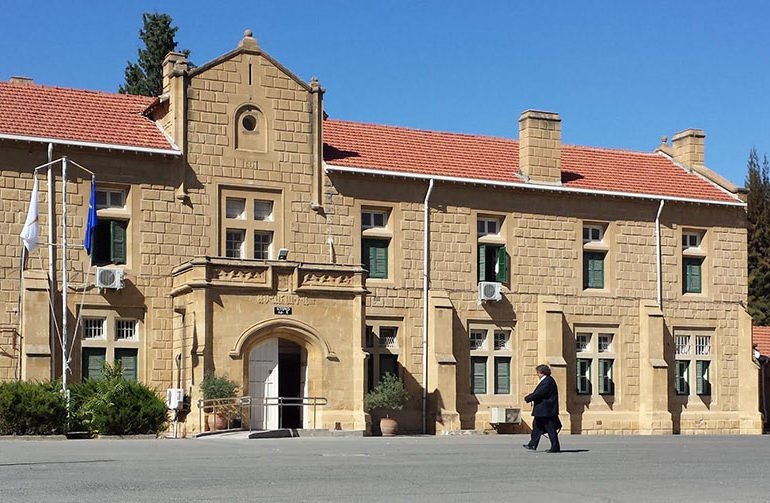A graphology expert told a Cypriot court on Wednesday that he could not reach an “absolute conclusion” over disputed handwriting linked to a German woman accused of seizing Greek Cypriot properties in the north.
The testimony came during a trial within a trial at the Nicosia criminal court. The proceedings focus on how Eva Isabella Kunzel was arrested, the language used during her detention, and whether she freely signed a consent form for her luggage to be searched at the airport. Marios Markides, an expert witness for the defence, was cross-examined by prosecutor Anna Matthaiou. Matthaiou argued that the handwriting samples Markides used were incomplete. She suggested they did not show enough variety in Kunzel’s writing style, preventing him from making a firm finding.
Markides replied that all the samples he examined were before the court. He insisted it was up to the judges to decide if the evidence was sufficient. Matthaiou also challenged Markides on his findings. She said his analysis of how fluid or rich in characteristics the writing was appeared contradictory. She suggested that the methods and samples used were not enough for him to draw an absolute conclusion through comparison alone.
Speaking in court, Markides explained that each case has unique factors. He said a skilled graphologist decides whether results match what scientific texts describe for forensic handwriting analysis. He said he assessed 27 samples and concluded he had before him Kunzel’s genuine handwriting. He disagreed with the police graphologist, George Chrysanthou, who had offered different views. Markides argued that experts should not focus only on single handwriting features because they do not show individual writing identity on their own.
Instead, he said, features must be assessed together and checked for repetition. Markides said this approach led him to conclude that the disputed writing was Kunzel’s own. During cross-examination, he mentioned finding “obvious differences” between the disputed writing and samples collected during preliminary comparisons. Matthaiou questioned why Markides did not collect separate letters or an alphabet sample from Ms Künzel, as Chrysanthou had done. She argued that examining how someone writes without joining letters could help reveal writing variety.
Markides disagreed. He said graphology compares writing or signatures as a whole rather than individual letters. He explained that isolating letters changes how a person writes because letters relate to what comes before or after them. Matthaiou referred to published literature stating that if disputed documents are written slowly, quickly, slanted, or upright, the person should be asked to produce samples under the same conditions. She argued this helps experts observe how someone’s writing changes.
But Markides said an internal police directive advises the opposite. He claimed that while many samples can be collected, the person writing them should not be instructed on how quickly or slowly to write. He said the investigating officer should keep collecting samples, sometimes up to 100, until they are convinced they have captured the person’s genuine writing. He disagreed with forcing someone to write quickly, slowly, or in any specific style.
The trial within the trial is set to continue on July 16 at 9am, when the questioning of the final defence witness is expected to conclude. The court is still examining whether Kunzel herself filled in all parts of the consent form or if someone else completed part of it. The case remains ongoing.







Click here to change your cookie preferences